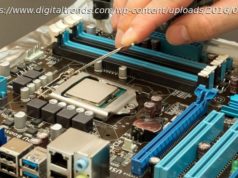While AI encroaches on our coding skills, it has not aced human language by any stretch. That’s where our competitive advantage lies, so be prepared.
I recently devoted three posts on my reluctant study for the OCP-17 Java exam, offering advice on how to make the effort less of an ordeal. I haven’t passed it yet. With every new advance in AI coding assistance, honing your skills as a human compiler seems to me more anachronistic. It always was an act of masochism, but I am increasingly convinced that there is no professional advantage in becoming good at something the machine is superior at. I concede that any pursuit can be beneficial or enjoyable for reasons other than mere utility, but as a developer, I am paid to be productive. Having a good time at the job is a nice-to-have, and the skills the OCP calls for are not my idea of fun.
Many intellectual tasks that are hard for humans are easy for computers (chess, arithmetic, rote learning) and have been that way for decades. We invented higher-level programming languages and garbage collecting because human beings are terrible at flipping bits and managing memory. The roadmap of computer languages and tooling is one towards ever greater abstraction. GitHub Copilot and the likes are only the next unavoidable step in removing accidental complexity.
Techno-optimists like Marc Andreessen believe AI will save the world. Read his essay, but also consider he’s a billionaire whose creature comforts are safe from upheavals in the developer job market. You and I, with a mortgage to pay and some years left until retirement, must wonder how we can keep our skills several clever steps ahead, preferably in a niche that AI can never encroach on. Does such a niche exist, and will it stay off-limits for long? I believe there is. It’s within human language. Humans still have a massive competitive advantage. That’s what this post is about. I won’t deny I’m impressed by ChatGPT and Google Translate, but as a former translator, I am neither unduly worried that they can replace us. Cylons Would Never Speak English
You’d assume that sentient computers in a distant galaxy would speak some form of computer language to each other. As young sci-fi fans, my brother and I were served very well by Dutch tv in the late seventies: Star Trek, Buck Rogers, Blake’s 7 and goofiest of all, the original Battlestar Galactica. Being the bright pre-teens we were, we quickly noticed the serious design flaws in the evil Cylon robot race. Besides their frankly pathetic flying skills, why in Zeus’ name would these fridges communicate in American English to each other!? At the rate of two syllables per second and using sound waves. No general intelligence would evolve in such a clumsy and anthropocentric direction.
In his essay, Andreessen gives the following description of AI: The application of mathematics and software code to teach computers how to understand, synthesize, and generate knowledge in ways similar to how people do it.






